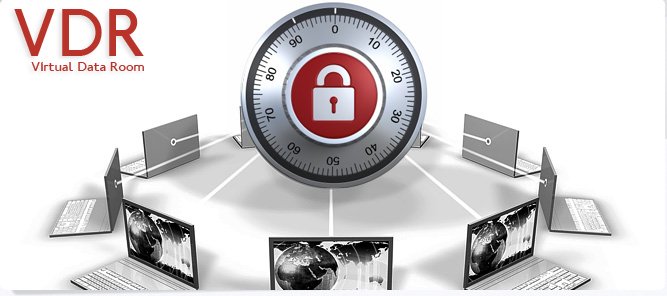Owning a VDR makes a lot of strategic sense if you count among your key clients the legal and financial sectors
BY:
Eric De Grasse
Chief Technology Officer
PROJECT COUNSEL MEDIA
2 September 2022 – Yesterday we focused on the acquisition of Micro Focus by OpenText. As I noted, the big take-aways from that acquisition are:
• The acquisition of Micro Focus will enable OpenText to gain a presence in several parts of the enterprise technology market where it currently isn’t an established player. Additionally, the deal is set to expand OpenText’s core portfolio of products for managing business records. Micro Focus offers a set of applications that companies can use to back up their business records, organize them and ensure data is managed in accordance with regulations.
• Most importantly, the acquisition is set to make OpenText one of the world’s largest software and cloud providers. With this deal, OpenText – which also owns cloud backup provider Carbonite, and cyber security company Webroot among other subsidiaries – expands its information management market opportunity to $170bn.
But there are other big moves being made by big players in the enterprise search, eDiscovery and information governance markets.
TransPerfect, the world’s largest language services company, this week bolted on not another piece of machine translation tech or a rival LSP, but a virtual data room (VDR) — essentially, a cloud-based, file-sharing platform that allows lawyers, investment bankers, and corporate dealmakers to exchange highly sensitive information. It bought Sterling Technologies, a provider of VDR solutions based in the UK.
In brief: a virtual data room (sometimes called a VDR or Deal Room) is an online repository of information that is used for the storing and distribution of documents. In many cases, a virtual data room is used to facilitate the due diligence process during an M&A transaction, loan syndication, or private equity and venture capital transactions. This due diligence process has traditionally used a physical data room to accomplish the disclosure of documents. For reasons of cost, efficiency and security, virtual data rooms have widely replaced the more traditional physical data room. A virtual data room is an extranet to which the bidders and their advisers are given access via the internet. A virtual data room is a key prerequisite for automation of tasks in the due diligence process.
VDR solutions provide a highly-secure environment for content to be shared, most commonly to allow various parties to collaborate on the sensitive documents required for corporate dealmaking – a high-stakes activity usually shrouded in secrecy. Although the terms of the transaction were undisclosed, TransPerfect CEO Phil Shawe told Slator that the “the valuation reflected Sterling’s position as a successful business providing a SaaS software solution”. Likewise, TransPerfect declined to share revenue figures for Sterling. However, UK regulatory filings suggest that Sterling generates about GBP 10.2m (USD 12m) in annual revenue.
Sterling is not TransPerfect’s first VDR technology acquisition. It acquired Deal Interactive and incorporated it into their Legal Solutions offering in 2007. TransPerfect also owns proprietary VDR technology, called TransCEND, which the company will continues to offer.
Owning a VDR makes a lot of strategic sense if you count among your key clients the legal and financial sectors. There’s high-margin SaaS revenue for hosting documents and you get to charge service revenue if there’s a need for translation.
And VDRs are just one of the hundreds of what I call “adjacent” services and technologies, which are open to language service providers looking for growth in complementary sectors. Another example of an adjacent market – at least from a translation and localization provider’s point of view – is multilingual transcription and captioning.
Granted, VDR may not initially appear to be the most obvious area for a language service provider to expand into, but with many corporate transactions (e.g., M&A) involving companies and stakeholders based in different countries, there is a clear crossover with translation services. I highlighted the importance of the VDR market for language service providers as far back as 2015 when I noted many eDiscovery vendors and language service providers were looking toward “adjacent” services and technologies with which to expand.
More specifically, there is a long relationship between the world of financial printing, VDRs, and language services. For example, Toppan Merrill, which shares a parent company with language service provider Toppan Digital Language, offers VDRs as part of its range of legal and financial printing services. Sterling itself was originally part of Sterling Financial Printing before it was separated in 2018.
Discussing the rationale behind the Sterling acquisition, Transperfect’s Shawe said that the use cases for VDR, and indeed Sterling’s technology, are broad. From the most active users of VDR such as “advisory, finance, and legal, Sterling’s VDR products are used in a number of corporate fields such as life sciences and real estate”.
But I also believe the addition of Sterling to the Transperfect product mix is a potential game changer with respect to proactively addressing the VDR market. Of course, Sterling customers will have streamlined access to any TransPerfect services they wish to engage — and, reciprocally, many TransPerfect customers stand to benefit from Sterling’s best-in-class VDR technology product and white-glove customer support.
OpenText and Transperfect: two of our industry leaders thinking outside the box.

